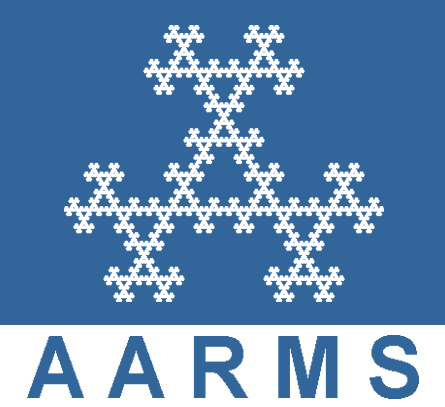2018 CMS Summer Meeting
Fredericton, June 1 - 4, 2018
Combinatorial Game Theory
Org: Svenja Huntemann (Dalhousie University), Neil McKay (University of New Brunswick, St. John) and Rebecca Milley (Memorial University)
[PDF]
Org: Svenja Huntemann (Dalhousie University), Neil McKay (University of New Brunswick, St. John) and Rebecca Milley (Memorial University)
[PDF]
- MELISSA HUGGAN, Dalhousie University
Simultaneous Complications [PDF]
-
Combinatorial game theory has a beautiful underlying structure, where algebraic structures meet game value equivalence classes, and properties we would expect to hold, do. Now consider combinatorial games but rather than players taking turns moving in a game sum, players move at the same time. Throughout this talk, we will explore these simultaneous combinatorial games, and examine the challenges associated with sums and game values. Lastly, we conclude by discussing a potential solution to these challenges, as well as future directions.
Joint work with Dr. Richard Nowakowski and Dr. Paul Ottaway.
- SVENJA HUNTEMANN, Dalhousie University
Boiling Placement Games [PDF]
-
Given a set $S$ of combinatorial games, the boiling point $BP(S)$ is the maximum temperature of all games in $S$. When $S$ is a set of games with a fixed ruleset, determining the boiling point is of particular interest and many longstanding conjectures exist.
We will introduce a new bound on the temperature of a game based on the measure of its confusion interval and those of its options. We further demonstrate a technique for bounding the measure of the confusion interval, which is particularly applicable when the games in question are placement games. In particular, we bound the boiling points of classes of partizan Splittles, partizan Subtraction, and Domineering snakes.
This is joint work with Richard Nowakowski and Carlos Santos.
- NEIL MCKAY, UNB Saint John
Dicotic Placement Games [PDF]
-
Placement games can be played with pen and paper. Players place pieces and those pieces are not moved. Dicotic games are nice to play as these are games in which each player has a move unless the game is over (when neither player has a move). We review the dicotic placement games that have been studied (including Domineering variants) and game values that appear. Our view is that in practice we may find more interesting Normal-play values with smaller birthdays by studying dicotic games specifically.
- REBECCA MILLEY, Grenfell Campus, Memorial University of Newfoundland
Domineering under misere play [PDF]
-
Restricted misere theory allows us to more easily analyze certain classes of combinatorial games under misere play. This talk will review recent results for misere reductions in the universe of dead-ending games, and present some new results for the specific dead-ending game of Domineering, under misere play.
- RICHARD NOWAKOWSKI, Dalhousie University
Guys and Mols [PDF]
-
Adelaide and Nathan each have an $n\times n$ matrix. They can place a number between 1 and $n$ in either matrix provided that each matrix has the latin property (no repeated entry in any row or column) and that the pair of matrices are mutually orthogonal (no repeated ordered pairs). The winner is the one with the most entries in their matrix. We show that the second player has a drawing strategy for all $n$. This is also true for mutually orthogonal sudoku squares. The proof follows from re-interpreting the latin squares as a graph game where the graphs have a matching with properties. Since drawing is not necessarily the best outcome ---the second player wins in the $2\times 2$ game---there are lots of open questions.
- THOMAS WOLF, Brock University
About Computations for Chomp and iChomp [PDF]
-
The talk will report on computations for the game Chomp:
- a collection of all loosing (P-) positions up to some size,
- a conjecture about the density of P-positions,
- a method for finding 1-parameter families of P-positions,
- a computation determining Sprague-Grundy (SG) numbers for positions up to a maximum number of tiles,
- a formula for SG numbers for positions with tiles in two rows,
- an isotropic variant of Chomp that we call iChomp, and
- a method of how to compute the SG number for positions in iChomp from SG numbers for Chomp positions.





